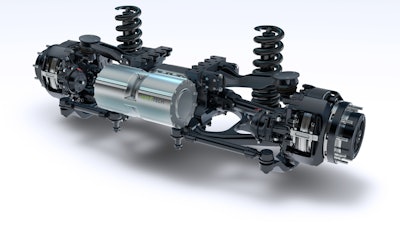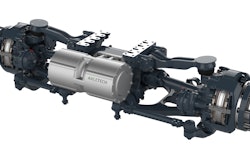
responses submitted by Dan Chien, Vice President, OE Business Development, AxleTech
Diesel vs. Electric
Do you think there will always be a place for diesel powered equipment for heavy-duty applications? Why or why not?
The adoption rate for electrification correlates with the vehicle’s duty cycle. With battery prices decreasing significantly over the last few years, the total cost of ownership becomes more viable for certain commercial vehicles, specifically vehicles that have a ‘start-stop’ vocation. Key metrics that promote electrification in commercial vehicles versus diesel include maintenance costs, operating costs, and performance. Diesel-powered vehicles that are payload sensitive and require a longer range will be the last to transition in our industry.
What would electric power sources have to achieve in order to replace the diesel engine for heavy-duty applications?
Efficient powertrain systems, combined with lower cost batteries can achieve the right performance gains and efficiencies to displace a diesel engine in certain heavy-duty applications.  The AxleTech 5000 Series eISAS™ helps meet the demand for more efficient powertrain systems.
The AxleTech 5000 Series eISAS™ helps meet the demand for more efficient powertrain systems.
How do the diesel bans in several major cities around the world play into the direction your company is taking for electric vehicle development, if at all?
Regulatory pressures to reduce or completely eliminate diesel emissions are growing significantly around the world. These incentives, or pledges for greener cities, are promoting the acceleration of electrification for city buses, school buses, and vehicles that operate in and around ports and terminals. Consequently, we are seeing greater demand for efficient powertrain systems from our customers in these market segments. We have invested in expanding our engineering capabilities to provide our customers with full solutions.




















